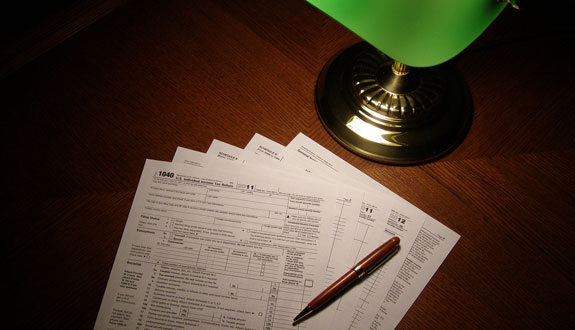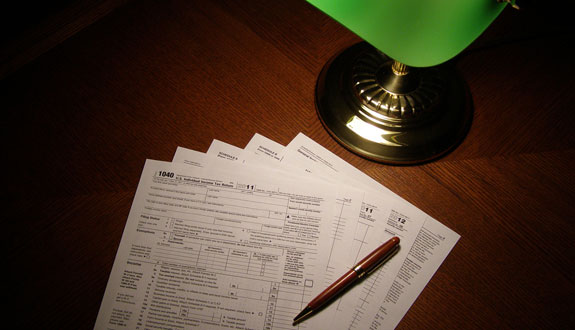LSAT Prep Lessons You Can Learn From Tax Day
- by
- Apr 16, 2013
- LSAT
- Reviewed by: Matt Riley


Happy Tax Day, fellow Americans. As you (should) know, today is the last day for you to send in your tax return. For many, it’s a day rife with anxiety and marked by a harried late night journey to the post office. For others, it’s a day forgotten, only to be remembered too late. For this group the consequences can be severe. Too often this group will receive notice from the IRS that they owe ol’ Uncle Sam a stack of cold hard bendy-foldies. “But I’ve already spent the money I owe,” they plead. “I have to take a job I don’t really like to pay back the money,” they squeal. These folks are not terribly different from those who forget to study (or start studying late) for the LSAT.
The LSAT is a test of skill, not knowledge. The best way to develop a skill is through flawless repetition. The later you begin your studies, the less repetition you’re able to get in. Less repetition leads to flawed technique. Flawed technique leads to lower LSAT scores. Lower LSAT scores can mean that you miss out on acceptance at your law school of choice. Guess what? Even if you attend a lesser school, law school doesn’t get any cheaper. So you’ll have to take out student loans. Then, when you graduate from a lesser law school you’ll owe a lot of money (like someone who hasn’t paid her taxes). You probably won’t get your job of choice and you’ll have to take a job of which you’re not particularly fond in the name of paying down your debt.
But it’s not all gloom and doom kids. Some folks actually do their taxes on time. They send in their returns as soon as those W-2s come in the mail. Sometimes they even get refunds. They can take their refunds and invest them, earning even bigger returns as reward for their prompt filing. Studying for the LSAT is not dissimilar. The earlier you start studying, the more likely you are to develop the requisite skills for the test. The sooner you develop the skills, the sooner you can sharpen those skills, adding nuance and understanding to your technique. The better your technique, the better your LSAT score. The better your LSAT score, the more likely you are to get into your law school of choice. The better your law school, the better your job prospects will likely be. The better your job prospects, the more likely you are to find a job you genuinely enjoy.
In other words, if you think you should be studying, you’re probably right. Take your own advice.
Search the Blog

Free LSAT Practice Account
Sign up for a free Blueprint LSAT account and get access to a free trial of the Self-Paced Course and a free practice LSAT with a detailed score report, mind-blowing analytics, and explanatory videos.
Learn More
Popular Posts
-
logic games Game Over: LSAC Says Farewell to Logic Games
-
General LSAT Advice How to Get a 180 on the LSAT
-
Entertainment Revisiting Elle's LSAT Journey from Legally Blonde








